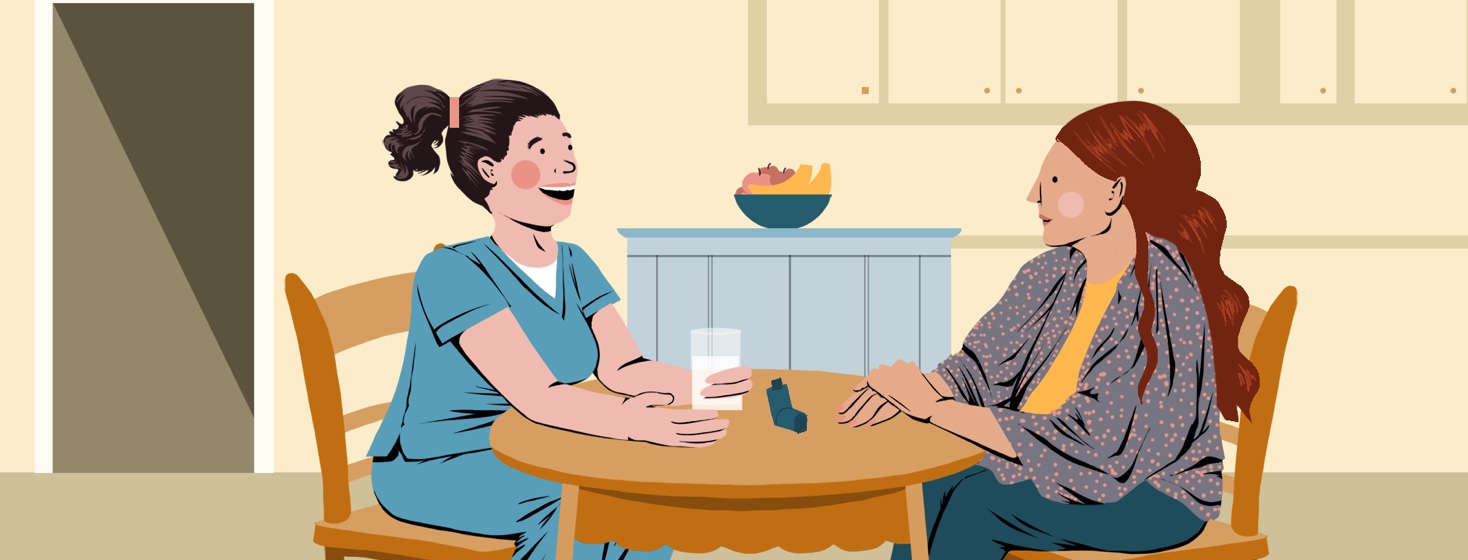Asthma Home Visit Programs
I just gave a presentation at a national conference of allergy and asthma physician assistants (PAs). Many of them were surprised to find out about asthma home visit programs, so I thought other people might want to know about them too.
Did you ever wish people still made house calls? Well, they do!
Home visit programs
Seriously – they are real! They are not run by doctors (because they are needed in clinics). But they are run by certified asthma educators, nurses, health educators, community health workers, etc.
These free programs are for people who need a little extra help managing their asthma. Many people THINK their asthma is just fine – but they may be using too much albuterol, are frequently in the emergency room (ER) or hospital, and might be missing a lot of school or work.
To them that is normal – but it should not be.
The Centers for Disease Control (CDC) funds 25 different states, territories, and municipal partners to run asthma programs to help people with asthma. Most of them have asthma home visit programs. The programs are grant-funded, which means they are free for the people accessing them. 1
I am a little biased because I used to coordinate an asthma home visit program, and I loved it!
How do asthma home visit programs work?
My health department would get referrals from pediatricians, hospitals, school nurses, etc. It is a great partnership because doctors examine, diagnose, and prescribe medications for their patients. They would spend a few minutes educating each patient about asthma, but then their time was up and they needed to go to the next room to see another patient.
So doctors would refer their patients to an asthma home visit program. We had the time (and were paid) to drive to the patient's house to give them a little extra help.
We would check to make sure the patient was using their inhaler correctly and teach them about asthma triggers. We would teach them what happens in the lungs during an asthma attack and what symptoms they might have. We would also teach them the emergency signs of an asthma attack and when they needed to go to the ER or hospital.
During the next visit, we would drive back out to the patient's house and teach them how to make their house or apartment allergy- and asthma-friendly. We would talk about allergy or asthma triggers in the home and then walk with them through their home to look for any problem areas.
If they had mold or other issues, we would talk about how to fix the problem. And connect them to help. We would also give them a mattress pad cover, pillow case cover, and bucket of allergy and asthma-friendly cleaning supplies.
We would also connect them to anything else they needed – like help with rent, utilities, finding financial help for prescriptions, etc.
We were there to help and make their life a little easier. It is everything their doctor would do if they could – but they just do not have the time.
Do they work?
Yes! The program I coordinated was able to significantly reduce asthma hospitalizations, ER visits, and missed school and work days. Overall, people who went through the free program had a better quality of life because their asthma was more controlled.
Has anyone participated in an asthma home visit program? If so, what was it like for you?

Join the conversation